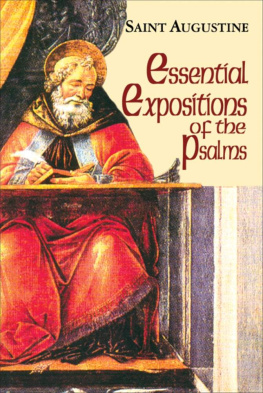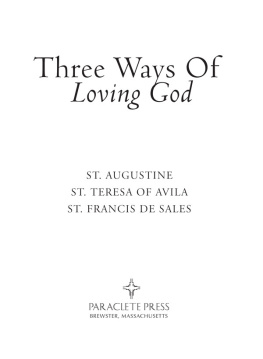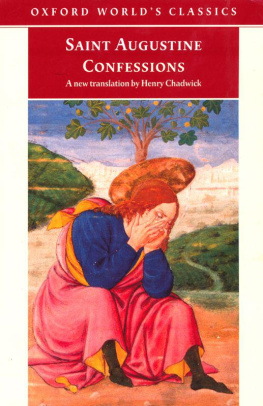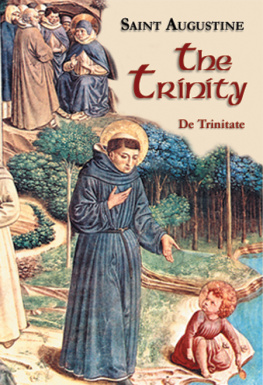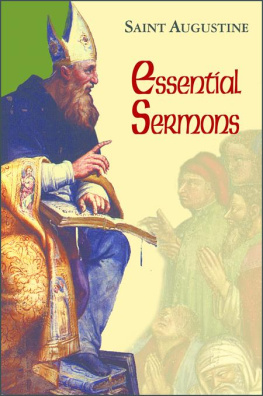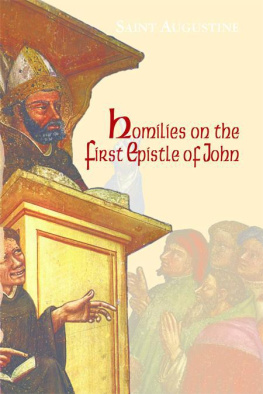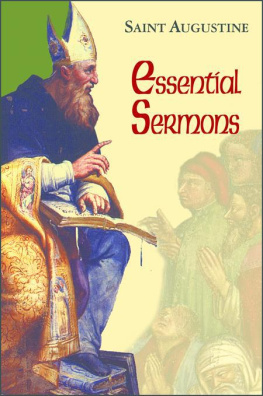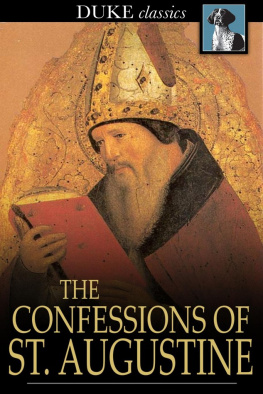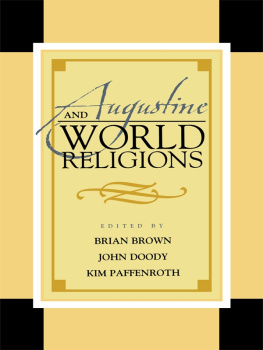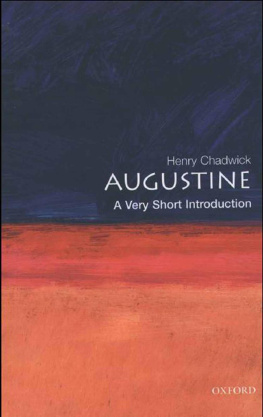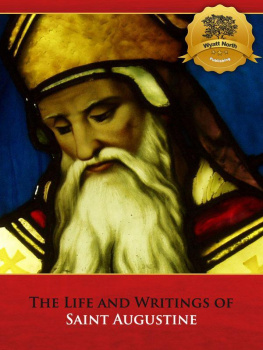Saint Augustine - The City of God Books 1-10
Here you can read online Saint Augustine - The City of God Books 1-10 full text of the book (entire story) in english for free. Download pdf and epub, get meaning, cover and reviews about this ebook. year: 0, genre: Religion. Description of the work, (preface) as well as reviews are available. Best literature library LitArk.com created for fans of good reading and offers a wide selection of genres:
Romance novel
Science fiction
Adventure
Detective
Science
History
Home and family
Prose
Art
Politics
Computer
Non-fiction
Religion
Business
Children
Humor
Choose a favorite category and find really read worthwhile books. Enjoy immersion in the world of imagination, feel the emotions of the characters or learn something new for yourself, make an fascinating discovery.

- Book:The City of God Books 1-10
- Author:
- Genre:
- Year:0
- Rating:4 / 5
- Favourites:Add to favourites
- Your mark:
- 80
- 1
- 2
- 3
- 4
- 5
The City of God Books 1-10: summary, description and annotation
We offer to read an annotation, description, summary or preface (depends on what the author of the book "The City of God Books 1-10" wrote himself). If you haven't found the necessary information about the book — write in the comments, we will try to find it.
The City of God Books 1-10 — read online for free the complete book (whole text) full work
Below is the text of the book, divided by pages. System saving the place of the last page read, allows you to conveniently read the book "The City of God Books 1-10" online for free, without having to search again every time where you left off. Put a bookmark, and you can go to the page where you finished reading at any time.
Font size:
Interval:
Bookmark:
Table of Contents
The City of God
(De Civitate Dei)
A ugustinian Heritage Institute
Board of Directors:
+John E. Rotelle, O.S.A. (1939-2002), founding director
Michael T. Dolan Joseph L. Farrell, O.S.A.
William Harmless, S.J. Joseph T. Kelley
Patricia H. Lo Jane E. Merdinger
Boniface Ramsey
Translation Advisory Board:
Gerald Bonner Allan D. Fitzgerald, O.S.A.
Edmund Hill, O.P. Joseph McGowan
Boniface Ramsey Roland J. Teske, S.J.
THE WORKS OF SAINT AUGUSTINE
A Translation for the 21st Century
Part I - Books
Volume 6:
The City of God
THE WORKS OF SAINT AUGUSTINE
A Translation for the 21st Century
The City of God
( De Civitate Dei)
I/6
introduction and translation
William Babcock
notes
Boniface Ramsey
(general editor)
Published in the United States by New City Press
202 Comforter Blvd., Hyde Park, New York 12538
2012 Augustinian Heritage Institute
Library of Congress Cataloging-in-Publication Data:
Augustine, Saint, Bishop of Hippo.
The works of Saint Augustine.
Augustinian Heritage Institute
Includes bibliographical references and indexes.
Contents: pt. 1, Books. v. 5. The Trinity /
introduction, translation, and notes / Edmund Hill.
pt. 3. Sermons. v. 1. 1-19. Introduction /
Michele Pellegrino.
1. Theology Early Church, ca. 30-600. I. Hill,
Edmund. II. Rotelle, John E. III. Augustinian
Heritage Institute. IV. Title.
BR65.A5E53 1990 270.2 89-28878
ISBN 1-56548-055-4 (series)
ISBN 978-1-56548-454-2 (pt. 1, v. 6)
ISBN 978-1-56548-455-9 (pt. 1, v. 6: pbk.)
Printed in the United States of America
INTRODUCTION
The Text
Two loves, Augustine writes, have made two cities. Love of self, even to the point of contempt for God, made the earthly city; and love of God, even to the point of contempt for self, made the heavenly city. (XIV,28) For all its vast scale and intricate complexity, then, The City of God is a story of love. It is, however, a love story played out in a cosmic setting, across an immense historical range, and within complicated patterns of social order. It is important to note at the outset that the two cities that Augustine has in mind cannot be equated straightforwardly with any political units or social entities. While it is true enough that he does at times identify the heavenly city, the city of God, with the Christian Church and the earthly city, the city of the devil, with the Babylonian or the Roman empire, he insists that the Church inevitably contains some members of the earthly city and that the great empires contain some members of the heavenly city who are not yet known to the Church. The two cities will only be separated out and appear in unmixed form at and after the final judgment when each attains its ultimate destiny. In the meantime, in the span of human history, they are not and cannot be sociologically or politically defined. They are formed, rather, by the deepest orientations of the human heart, by its desires and its loves; and, for Augustine, it is never possible in this life to read the innermost direction of the heart. That is one of the most heartrending features of life in this world. There is always a veil of darkness that finally separates one person from another and makes it impossible to penetrate into the inner regions of another persons self. Augustines tale of two loves, therefore, does not reduce or eliminate the ambivalence and ambiguity of human history and society. It does not allow us to cut through the uncertainties of human interrelationships and declare with complete assurance that we have found the true, the just, and the good society or, in contrast, the false, the unjust, and the evil society in any specific social or political grouping. Rather, it creates a contextan immensely complex contextwithin which we can interpret the modes of human behavior and the forms of human society without ever being able to assure ourselves that any one group is all right or all wrong. It is not a context that prevents or prohibits moral judgment. In fact, it might well be called a guide to moral judgment and a charting of the way of virtue. But it does undercut all self-righteousness in moral judgment. Within this context, it is clear that we cannot discern the ways of God (except where they are revealed in Scripture, which rests on Gods authority, not ours), cannot plumb the depths of the human heart, and can find no morally pure community on earth. God alone, then, can see who does and who does not finally belong to each city, and God alone can achieve the separation of the one from the other.
The Sack of Rome and The City of God (Book I)
The immediate occasion for the writing of The City of God was the sack of the city of Rome by Alaric and his Gothic army in August of 410. The Goths occupied and pillaged the city for three days and left considerable destruction in their wake when they withdrew. But the political import of the citys fall was probably not as significant as its psychological impact. After all, the capital of the Roman empire had been transferred from Rome to Constantinople almost a century earlier, and the seat of imperial government in Italy had long since been removed from Rome to Milan and then to Ravenna on the Adriatic coast. In the light of Romes fall to the Goths, however, it seemed that Rome had suddenly and disastrously lost its invulnerability and that, against all expectation, Jupiters promise had failed.
To the empires remaining pagan populationespecially in the Latin West where the traditional accounts of Romes founding and its rise to greatness were still strongthe reason for the failure was all too obvious. Rome had abandoned her gods and banished the sacrifices that earned their favor; and, as a consequence, her gods had abandoned her and withdrawn their protection. The city had fallen to the onslaught of the Goths. And in the event, the new Christian God, for whom they had traded their traditional religion, had provided no defense at all. Not only had he proved powerless against the Gothic army, he had not even been able to defend his own devotees. Like their pagan counterparts, Christians too had been taken captive, tortured, raped, looted, and killed. Their prayers for protection had fallen on deaf ears, or had been no more than pleas to a God without power.
In North Africa, as his sermons show, Augustine was already responding to such complaints in 410, in the immediate aftermath of the calamity at Rome. They survived only because Aeneas had carried them off on the voyage that would ultimately lead to the founding of Rome. They were gods who, far from defending their defenders, had been defended by them; and when their defenders fell to their enemies, the gods fell with them, escaping final defeat only because a few survivors were able to escape from fallen Troy and take their gods with them.
From the outset, however, Augustine had a larger plan in mind for The City of God . His aim was not to chronicle a competition between gods on the dubious scale of success or failure at the level of historical events. It was rather to confrontand to counterthe entire religious, cultural and political tradition of Rome on an entirely different set of issues, the issues clustering around the question of religion and the ultimate attainment of human happiness. Even in the first book of the work, then, he turns the question of Romes fall into a confrontation between alternate ways of assessing human suffering and relating it to the role of the divine. The real issue, he argues, is not a supposed failure of divine protection but rather the enigmatic workings of divine providence. Why is it that God extended his mercy to some of the evil as well as to some of the good? Why is it that God imposed his severity on the good as well as on some of the evil? The answer, it turns out, has to do with the ways in which divine providence makes use of historical events to shape human character. It sometimes spares the evil as well as the good in order to provide opportunities for repentance; and it sometimes afflicts the good as well as the evil in order either to punish them for their moral failures or to test them in their perseverance in the good. Thus the sufferings of Christians at the hands of Alarics Goths can be understood either as punishment for their failings, even if their failing was no more than the relatively minor fault of being afraid to rebuke and correct the powerful for their misdeeds, or as a way of putting them to the test in order to confirm them in their goodness. In neither case, however, does their affliction affect what genuinely counts as their true good. It does not separate them from God, nor does it rob them of the promise of ultimate happiness with him.
Font size:
Interval:
Bookmark:
Similar books «The City of God Books 1-10»
Look at similar books to The City of God Books 1-10. We have selected literature similar in name and meaning in the hope of providing readers with more options to find new, interesting, not yet read works.
Discussion, reviews of the book The City of God Books 1-10 and just readers' own opinions. Leave your comments, write what you think about the work, its meaning or the main characters. Specify what exactly you liked and what you didn't like, and why you think so.

